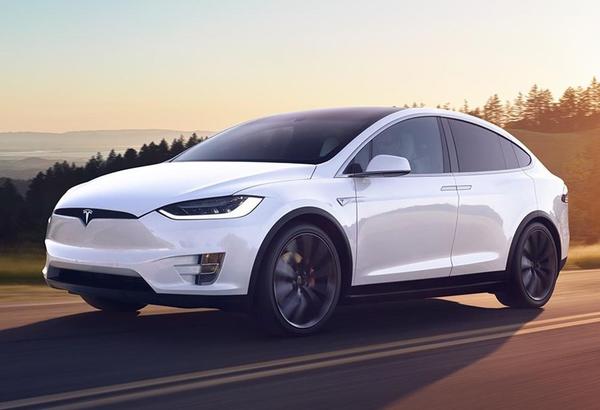Tesla Shares Nose-Dive Despite Record-Breaking Q4 Production Numbers
 |
| Tesla Model X |
Tesla announced a record-breaking number of fourth quarter deliveries on Wednesday, stating that it made homes for 90,700 vehicles since September. Despite the increase, shareholders felt a certain unsteadiness as stock prices declined and investors expressed their disappointment over failed expectations to close out the year.
Of the 90,700 vehicles delivered, Tesla produced 86,555 during Q4. This represents an overflow from previous quarters totaling 4,145 cars, or 4.6 percent of all deliveries. It's not clear if the leftovers were Model 3s from Q3, or if there were a number of Model S or X vehicles allocated to customers. Unsurprisingly, the Model 3 took the lead by comprising nearly 70 percent of all deliveries made during the quarter. The breakdown is as follows:
• 63,150 Model 3 (an increase of 13 percent over Q3)
• 14,050 Model X
• 13,500 Model S
Just before the holidays, CEO Elon Musk announced on Twitter that Tesla had released all pending vehicles for sale where owners could not take delivery before the end of the year. The announcement came as part of a push by Tesla to move as many vehicles as the automaker could before the $7,500 tax credit was slashed in half at the end of 2018. Tesla says that another 2,907 vehicles (an additional 3.2 percent) were en route to customers at the closing of 2018, a potential $10.9 million burn for Tesla if all units were promised year-end delivery.
In total, Tesla has delivered a total of 245,240 vehicles to customers since its launch. This includes 145,846 Model 3s and a total 99,394 units of Model S and X combined. Nearly half of all deliveries took place in fiscal year 2018, making it the largest year for Tesla growth on record.
Shareholders, however, weren't necessarily impressed with the growth. During morning trading, stocks fell nearly 8.7 percent from Tuesday's closing of $332.80, sliding to a floor of $303.96. Shares have recovered slightly during normal daily trading. Gene Munster, founder of Luop Ventures, spoke with CNBC regarding losses, stating that the financial firm still believes that there are production issues in play that are limiting the number of potential deliveries.
Furthermore, Luop Ventures doubled-down on its belief that the number of deliveries is not tied to demand (or rather, lack thereof) in a company-issued statement. The firm went on to state that it believes Tesla demand is instead tied to financial incentives such as the EV tax credit which will be eliminated by the end of 2019. Munster believes that through lower-priced configurations and European demand, Tesla will be able to continue to grow steadily during 2019.
